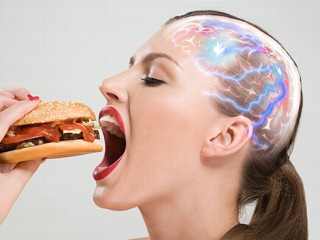No matter where you are on your health journey, whether you are transitioning from vegetarian to vegan , vegan to raw, or just trying to eat a whole foods diet without processed foods, I’m sure at some point you have struggled to stop eating a food when you knew it was not in your best interest. We all have comfort foods that become our go-to when we are treating ourselves or even worse when we are down in the dumps and trying to medicate or numb our true feelings. There’s a group of practitioners within health an wellness that believe that one diet does not suit all. Meaning, not everyone is meant to eat a diet free of animal products, be macrobiotic, paleo, a raw foodie or whatever the latest fad is. I can get down with that school of thought to some degree (with an obvious bias towards plant-based diet), however I think some people take it to far when they start to argue that all cravings are justified. Yes, our bodies tell us what we need through cravings, but the majority of people are completely out of touch with their bodies. Who doesn’t know someone addicted to sugar? I myself used to be a vegan sugar addict. So much so that when I first stopped frequenting vegan bakeries for sweets and started juicing instead I had to overload my fresh juices with apples for them to be acceptable to my over-sugared palette. Now that I’m “sober” I have equal passion for foods that are bitter and can drink my greens straight-up if need be. It is only when you are free from the addiction you realize how much it controlled you. Junk food cravings have nothing to do with nutrition and everything to do with addiction. There is no way that you can justify from a nutritional standpoint cravings for oreos, twinkies, doughnuts, or any other sugar-laden foods that are so far beyond the bounds of nature, offer no real nutrition, and can do serious damage to your health longterm.
The reason why your body lets you know that you are hungry in the first place is because it needs nutrition to function optimally. When you are out of alignment with nature and are addicted to unnatural foods or substances it is possible to be obese and be “starving” your body to death because you are not taking in the nutrients your body needs in order to thrive. Below is a brief list of some foods and substances, most of which you already know about, that are certified addictive. So how do you break the addiction? You start by overhauling your taste buds one day at a time and getting used to the levels of sugar, salt etc that exist naturally in real, whole foods. You also take a look at the emotions if any, that trigger your need. Are you acting out of grief, anger, or stress? Pinpointing the emotions you are feeling can help you find find a healthier way to express them rather than taking another bite. Once you recognize that certain foods are addictive, it is up to you to stay vigilant, take control of your choices, and EAT TO LIVE rather than feed addiction and eventually disease. -XoXo Raw Girl
Processed Food
Most of the processed and packaged food in our supermarkets are not real. These “frankenfoods” along with their supposed taste, texture, and smells are created by scientists in labs who have the goal to create products that are inherently addictive and that consumers cannot just take one bite of. In addition various combinations of sugar, salt, and fat are the top three substances making processed foods so addictive.
Refined Flour
The gluten-free craze should be a clear sign that more than ever people’s bodies are reacting to refined flours. Whole grains been in the human diet for thousands of years and take much longer to be digested that refined flours. The more refined a flour is, the more bioavailable it becomes. The higher the bioavailability of a food, the greater the total absorption and rate of absorption in our digestive tracts. The faster a food is absorbed, the more quickly it turns to glucose in the body…which translates into a spike of blood sugar followed by a drop in blood sugar. Thus refined flours have a similar effect on the body as sugars and consumption can triggering bingeing for some people.
Cheese
Cheese is seriously addictive. Here’s why: the main protein in milk and cheese is called casein. As you digest casein, it breaks apart to release opiates, called casomorphins – which are morphine-like chemicals. Shortly after you swallow a bite of cheese pizza, these chemicals enter your bloodstream and pass to your brain and attach to your opiate receptors. The natural function of casomorphins’ is to provide a bit of feel-good sensation to a nursing calf so that they yearn for the milk that will help them grow to maturity. And because a calf is weaned very soon, the fat, cholesterol and sodium in milk products are not a problem, but for humans who get hooked on these same compounds this can amount to serious issues as time goes on.
Sugar
Sugar creates a mild addictive reaction as it is digested, and this can affect a person’s brain chemistry in the same way that alcohol and other addictive drugs do. Opioids are a key chemical compound in this reaction, and in many of the most powerful addictive drugs, such as cocaine, morphine and heroin which is why researchers compare sugar to these hard drugs. Every time you consume sugar it gives a feel good euphoria, and just like other addictions can start to make us numb to a certain dosage and need even more sugar to satisfy our cravings each time. Too much sugar results in weight gain, increased rate of cancer, hormonal changes, mood swings, diabetes and depression.
Salt
If you though that somehow being a salt junkie is better than being a sugar junkie, think again. Food filled with sodium have similar addictive qualities and health repercussions such as bloating, fatigue, inflammation, weight gain, cholesterol, heart disease and kidney stones. Researchers have said that salt is addictive in the same way as cigarettes or hard drugs, with the craving triggering the same genes, brain cells and brain connections. In most of the processed foods that are salted to the excess, to make the salt’s taste more powerful, companies use kosher salt instead of regular table salt. Why? Kosher salt is shaped differently and dissolves on your tongue faster and triggers a “flavor burst” all over your mouth, thus intensifying the neurological response.
Caffeine
In most European countries many of the energy drinks that contain excess caffeine are banned. In addition the sizes and portions of caffeinated beverages are much smaller. It seems that some parts of the world have caught on that caffeine should be consumed more sparingly. Why is it then that in the U.S. in Starbucks, one tall cup of almost anything on the menu includes twice the amount of caffeine it takes to make you legimately addicted? Dr. Jack James, who is editor in chief of the Journal of Caffeine Research, and head of the department of psychology at Reykjavik University, Iceland, expressed concern for the amounts of caffeine consumers are exposed to and said that it is response for many untimely deaths. Because of this he believes that products contain caffeine should be taxed and restricted like cigarettes and alcohol and that selling caffeine to children should be restricted. Caffeine is now found in everything from sodas, energy drinks, bottled water, alcoholic drinks, cookies, chewing gum, yogurt, flavoured milk, cold and flu remedies, weight loss pills, mints, cosmetics, and soaps.






